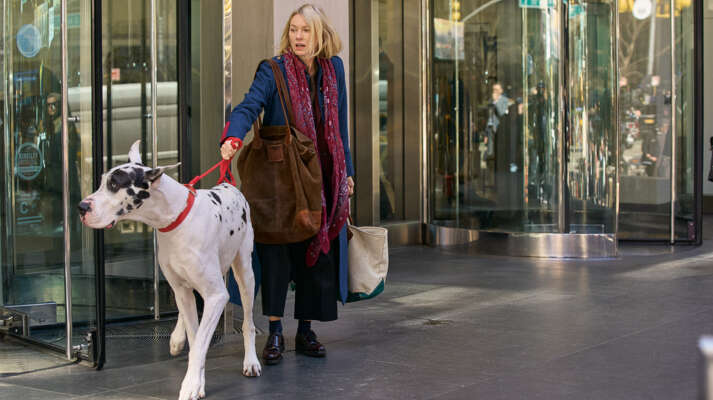Why Colette Still Matters
The wide world of people inspired by Colette
Why Colette Still Matters
Written by Peter Bowen
In Colette, Wash Westmoreland brings to the screen the great French artist (played by Keira Knightley) whose own life may have been her most inspiring work. From her marriage to Willy (Dominic West), the bigger-than-life Parisian literary impresario who both cultivated and exploited her talent by claiming authorship of her Claudine novels to her exploration of sexuality and identity with her many affairs, including her romance with Missy (Denise Gough), Colette defined what it would mean to be a modern woman. "Her life was a story in itself, and I feel that stories can change the world," notes Westmoreland, adding, "Hers did." To show why Colette still matters, we listen to just some of the many women for whom Colette's life and work remains an inspiration.
A really great writer
Colette's ability to convey with poetic openness our most private feelings and experiences made her an inspiration for other artists. In the 1940s, Simone de Beauvoir called her a "really great woman writer in France, a really great writer." When asked to name his fifteen favorite books, Philip Roth's only entry by a woman was Colette's Cheri. For women, however, she is especially poignant. Feminists from Doris Lessing to Naomi Wolf have found Colette's courage and clarity unprecedented. Fear of Flying's author Erica Jong called Colette "a beacon of health in a world of madness." For critic and journalist Vivian Gornick, "my friends and I read Colette as others read the Bible…. We read her to learn better who we were, and how, given the constraint of our condition, we were to live." Alison Bechdel, whose graphic memoir Fun Home was adapted into the Tony Award-winning musical of the same name, put Colette's Earthly Paradise on her essential reading list for the play, adding "Colette could write better than anyone about physical things."

An icon for all
Writers of all genres and backgrounds found something powerful, even personal, in Colette's voice. The British writer Angela Carter, who lets it known that "I've got a god-daughter named after her," believes that "her achievement as a whole was extraordinary." In her biography Alice Walker: A Woman for Our Times, Deborah G. Plant describes how the author of The Color Purple found in Colette a "belatedly discovered model" for how to write without a clear literary tradition. Indeed her distinctive voice could be as intimidating as it was inspiring. One of the world's most popular writers, J. K. Rowling admits, "I absolutely bow to Colette," but half jokes that "she would probably tell me where to get lost, because she was that kind of woman." A whole new generation of women writers, from Lauren Elkin in Flâneuse: Women Walk the City in Paris, New York, Tokyo, Venice, and London to novelist and blogger Emily Gould (who lists Claudine at School as one of favorite memoirs), find fresh inspiration in Colette.
An artistic spirit
A few years ago, the arts and design website AnOther posted a tribute, "Lessons We Can Learn from Colette," which identified the ways the writer's free spirit and individual style could inspire artists everywhere. Her willingness to stare down controversy in order to accomplish her creative goals, be it in her writing or her many stage performances, have made her an art icon. In writing about photographer Nan Goldin, The Independent's Michael Bracewell was immediately reminded of Colette and her aesthetic credo: "Look for a long time at what pleases you, and longer still at what pains you." Tunisian-born multimedia artist Colette Lumiere has used the spirit of Colette to fuel her bold exploration of sexuality, fashion, and performance. "The origin of the name Colette was very much inspired by French novelist and performer Sidonie-Gabrielle Colette," writes White Hot Magazine.

Fashion forward
Whether on a Parisian street or on the stage, Colette defined fashion. In an article, "Charting the history of female authors with the greatest sartorial sense," Harper's Bazaar made Colette number one in their list of women writers. The Gloss' post, "81 Years Of Style: French Writer Colette's Never Ending Influence On Fashion," explores the writer's enduring impact on personal style. The BBC points out that long before Jean Paul Gaultier was making sailor stripes all the rage, Colette had already launched nautical chic. Her style, however, was not just something she wore; it was sewn into the very fabric of her prose. "No writer ever managed to put into writing their passion for fashion better than Colette," explains Italian Vogue, which then goes on to illustrate the many well-crafted descriptions in her work.
A musical side
From writing librettos for Ravel to hanging with Debussy at society salons, Colette's life was intimately tied up with music. For female performers, Colette's persona as much as her prose provides a provocative model. An article in the journal Whistling Shade makes the obvious connection between Colette and today's pops divas. "Like Madonna and her younger imitator, Lady Gaga, Colette was an expert at the delicate art of fashionably shocking the public," writes Joel Van Valin. For Rosanne Cash, it was, however, Colette's poetic side that moved her. In her song, "The Summer I Read Colette," Cash describes the experience of encountering her work in the line, "We are blinded to the beauty in our own lives." When singer/songwriter Julia Holter read Colette's tale "Chance Acquaintances," a single character inspired her to write the song "Lucette Stranded on the Island." Holter explains, "Lucette is a side character in the story, but a devastating one."

All creatures, fierce and feline
Colette's fascination with animals, especially expressed in such works as her story collection Dialogues de bêtes and her novella The Cat, tickles the fancy of many animal lovers. The literary critic Terry Castle wrote, "Who more omnivorous - not to mention lewd - than Colette, the frizzle-headed Cat Woman of 20th-century French writing?" Joyce Carol Oates included Colette in her poem "Jubilate: an Homage in Catterel* Verse:"
The very best books (it is said)
are not ghost- but cat-written.
Simenon, Colette…
Animal writer Justine Hawkins notes with glee how "The amours, desires and intrigues of Colette's animal characters are depicted with the same sensual lyricism as those of her wayward schoolgirls, adventurous women, acrobats, mimes, lovers and loners."


